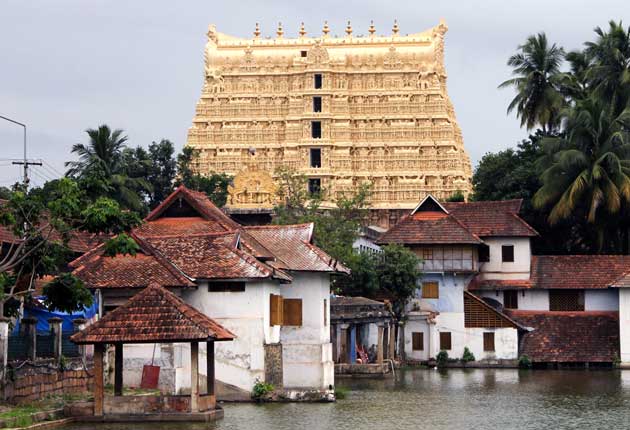The golden temple: £14bn treasure trove angers Indian people

For centuries, the devout in India have made pilgrimages to temples to pray and make offerings, be it in the form of flowers, rice, clarified butter or money. The money – traditionally to help the most vulnerable – has turned some of the temples into very wealthy institutions.
But the discovery of a glittering treasure trove worth almost £14bn in a temple in southern India has sparked discussion as to whether it is appropriate for places of worship to hoard such extraordinary wealth and even whether they should be taxed.
At the moment, the temples and other religious institutions receive tax-free status, but there are some who believe that should change. "Such temples are gargantuan vaults of tax-free wealth," claimed an editorial in the Hindustan Times.
"So how about dismantling what are essentially parallel economies by opening these vaults up and use the money to set up private schemes to bring material comforts to the poor?" Such a move could be contentious and politicians would be wary of antagonising the religious sentiments of potential supporters. In the case of Sri Padmanabhaswamy temple, believed to have been built in the 8th century and which may rank as the wealthiest religious building in the world, the Supreme Court has ordered a panel to assess just how much money may have been discovered in its vaults.
It will ultimately be the court's decision on what should happen to the treasure, but yesterday, it ordered that a security plan be drawn up to protect the temple's wealth, ordering the state of Kerala and the former royal rulers of the region to explain how they plan to safeguard the gold, silver and precious stones.
But there are many other wealthy temples across India and the discussion is likely to spread. The controversy that has erupted following the death of guru Sai Baba, who left a network worth more than £5bn, has also highlighted the wealth accumulated by religious institutions.
Ajay Gudavarthy, a political scientist at Jawaharlal Nehru University, said temples had always said the wealth they collected was for social welfare projects. But he said many failed to do this and a number had been at the centre of corruption allegations. "There is a lot of unaccounted money. People don't question it," he said. But he added: "Nobody trusts the state any more because there is so much corruption. One corrupt institution investigating another corrupt institution might not be so popular."
The chief minister of Kerala, Oommen Chandy, said the state would not try to take the money, adding: "The gold was offered to the lord. It is the property of the temple. The government will protect the wealth at the temple".
The treasure was uncovered after an activist applied to the courts to have the vaults opened, alleging financial mismanagement.
Join our commenting forum
Join thought-provoking conversations, follow other Independent readers and see their replies
Comments